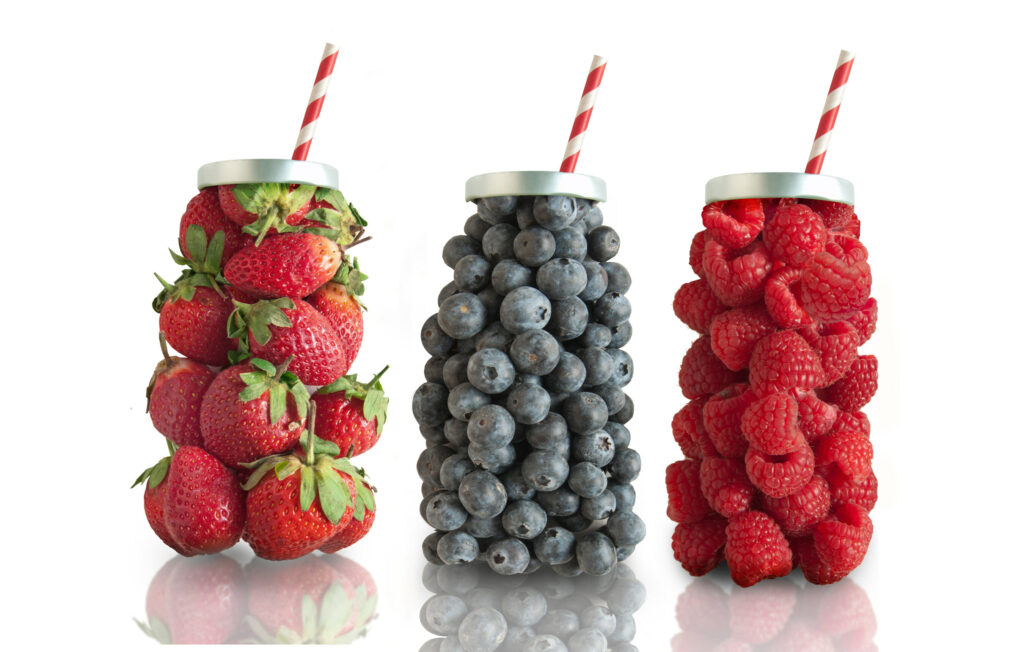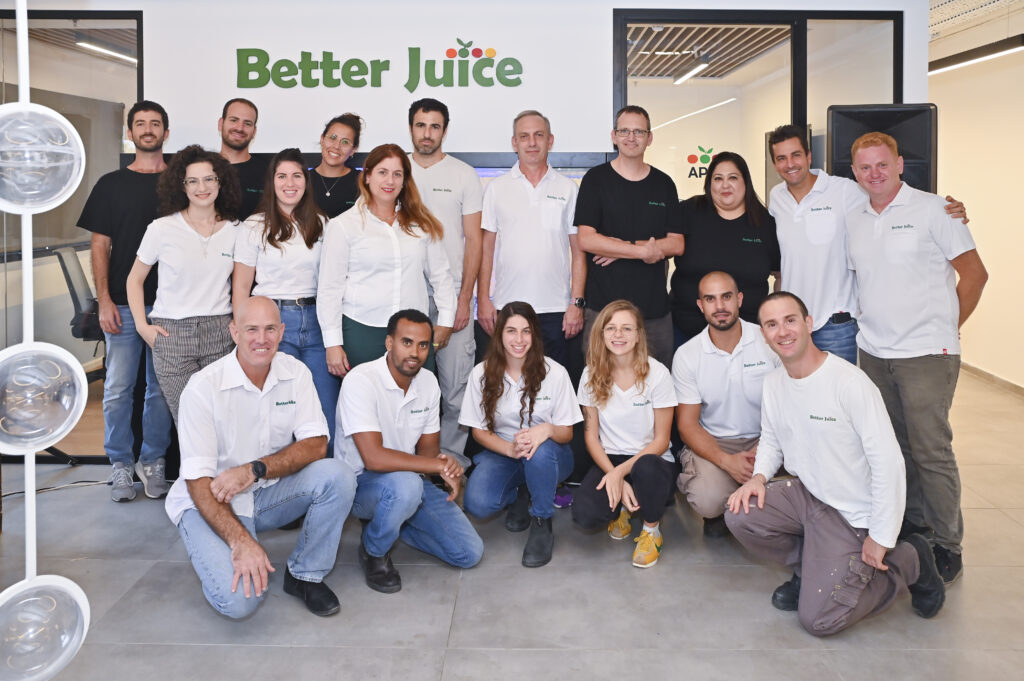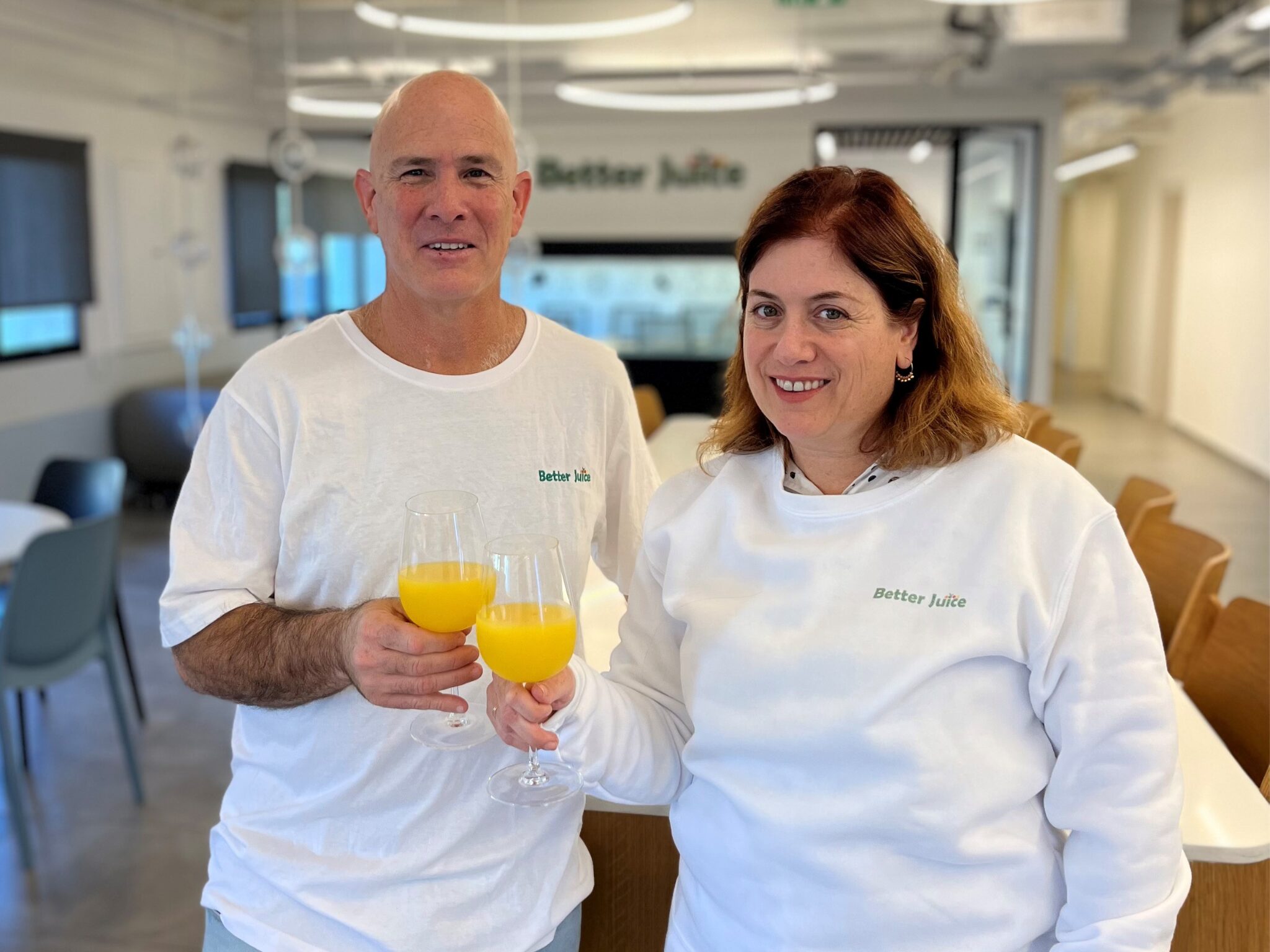Better Juice Earns Self-Affirmed GRAS Status to Reduce Sugars in Fruit Products by 80%
5 Mins Read
Israeli startup Better Juice, which has developed a device that reduces sugar in fruit products by 80%, has obtained self-determined GRAS status in the US.
In the world of Ozempic and GLP-1, sugar innovations are booming. The latest startup to disrupt this space comes from Israel, and promises to reduce the sugar content in your fruit juice by up to 80%.
Better Juice, an alumnus of The Kitchen Foodtech Hub, uses microbial enzymes to convert fruit sugars into dietary fibre and non-digestible sugars – and now, it has obtained self-affirmed GRAS (Generally Recognized as Safe) status in the US, meaning products using its technology can be sold in the country.
The 2018-founded startup opened a commercial-scale facility in the Nes Ziona Science Park last year, which has the ability to process 250 million litres of fruit juice annually. And, having successfully trialled its technology with international berry juice manufacturers, it has now inked deals with several companies to bring reduced-sugar fruit products to the market.
“Completing GRAS self-determination is a significant milestone for Better Juice, as it validates our technology’s safety and efficacy in reducing sugar content by up to 80%,” said co-founder and CEO Gali Yarom. Speaking to Green Queen, she confirmed the first products made with this technology will be out in Q4 this year.
Better Juice converts sugar into non-digestible molecules

Better Juice employs specialised equipment – including fermenters and immobilisation processors – to grow and harvest the beaded microorganisms that produce the sugar-reducing enzymes. The device is inserted as a simple pass-through production step, which makes it accessible and adaptable for a range of manufacturers.
Here’s how it works. The product flows through the immobilised microbes, which contain active enzymes that bioconvert sugar molecules to non-digestible molecules – sucrose turns to dietary fibre, glucose becomes gluconic acid, and fructose is converted into sorbitol. “Gluconic acid gives us a better absorption of metal in the blood, and sorbitol is a natural sweetener,” said Yarom.
“There is a different ratio of fructose, glucose and sucrose for each fruit,” she added. So the amount of sugar reduced depends on the makeup of the fruit. “In oranges, mango, peach, pineapple and banana, there is a high sucrose value and 50% sugar converts to dietary fibres. In apples and berries, the sucrose level is very low, and only 10-20% converts to dietary fibres.”
The final product does not contain the microorganisms, but retains the new compounds, as well as the flavour and body of the juice. It isn’t diluted either, but the sweetness factor is lowered just a touch. Plus, it maintains the natural profile of vitamins, minerals, organic acids and fibre. For manufacturers, the flexibility and plug-and-play nature of the bioreactor will stand out – they can choose how much sugar to reduce, as well as which molecules to convert.
Better Juice can reduce the sugar content from “all kinds of juice flavours”, explained Yarom. “Orange, apple, all the berries, pomegranate, lemon, grapefruit, all the citrus, banana, mango, even coconut water. We can also reduce [sugar] from juice concentrates and purées, which gives us the ability to reduce [it in] all the food that contains fruits, like fillers in cereals, sorbets, jams… yoghurts and gummies.”
Its technology has been granted patents in the US, Europe, Brazil, Mexico, Japan, Australia, South Korea and Israel, and it has two further patents pending. The startup says it is the first solution that can reduce sugar from the whole range of 30-80%, and without adding enzymes.
On-trend with the Ozempic boom

With the self-determined GRAS status, Better Juice will enable food manufacturers to create cleaner-label, better-for-you foods at a time when their stock has never been higher. A 12,000-person global survey by Kerry in late 2022 found that 79% of consumers find reduced-sugar products healthier – but, after honey, sugar or sucrose was the second most preferred sweetener for respondents (46%).
It exhibited the need for solutions like Better Juice’s technology. Others innovating in this space include Harvard University’s Wyss Institute for Biologically Inspired Engineering and British startup Zya, both of whom are creating ways to convert sugar into dietary fibre. “Zya converts the sugar to fibres in your body; it’s a different solution,” explained Yarom. “I prefer to say that I really consume products with fewer calories and low sugar.”
Speaking of which, Better Juice’s process also reduces calories in juices by up to 60%. It will speak to the large swathes of Americans who use GLP-1 agonist drugs like Ozempic, Wegovy and Mounjaro, as well as those who are looking for food-based alternatives to these products. Companies like Supergut, Olipop and Poppi are all targeting the prebiotic fibre space, so creating a product that turns sugar into prebiotic fibre (among other things) fits perfectly.
“We reduce calories in our technology – it completely matches the trends of diet, healthiness and low calories,” said Yarom. Two-thirds of GLP-1 drug users have either quit or reduced their intake of sugary sodas, while 45% of Americans on these medications are consuming less sugar than before. With Ozempic taking hold over the food industry, investors believe companies making sugary foods should rethink their plans, including via new recipes.
It’s why companies are flocking to Better Juice to use its device. It has completed a proof of concept with 17 in a long list of customers, with many others receiving samples or in different stages of collaboration with the startup. Two of these are Citrosuco (the world’s leading orange juice producer) and ingredient giant Ingredion, which has an entire business department dedicated to sugar reduction. Nate Yates, head of that division, said in January that Better Juice’s tech “adds a completely new dimension” to its portfolio and helps “reduce sugar without compromising on great taste or nutrition”.
Ingredion’s VC arm will also lead the startup’s Series A investment round – it has previously raised $8M in seed funding. As it prepares for market entry, Better Juice will also notify the FDA for GRAS approval in the form of a ‘no further questions’ letter, which it expects to receive by mid-2025. It has international ambitions too, having filed for novel food approval in Europe, and with plans to do so in Canada, Brazil, and Australia and New Zealand.




